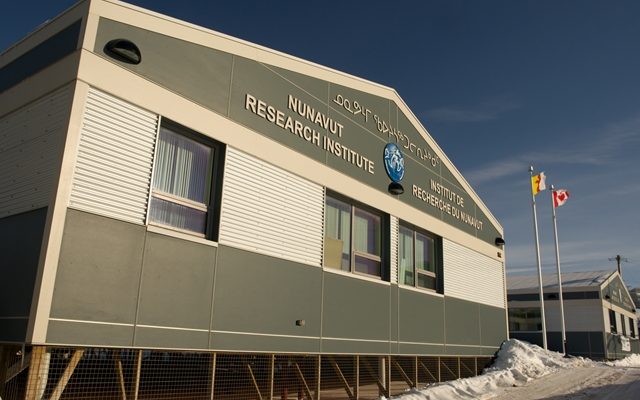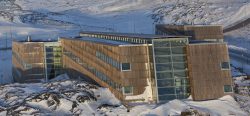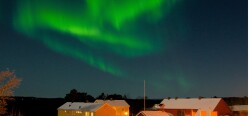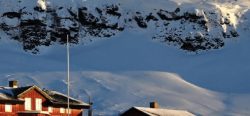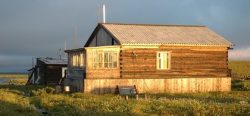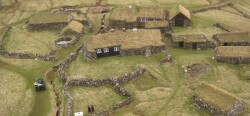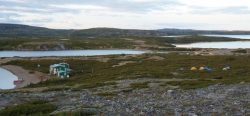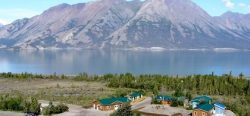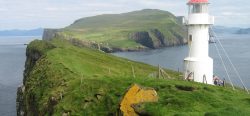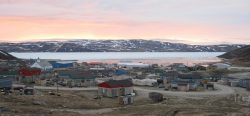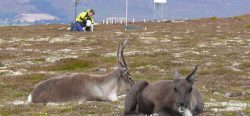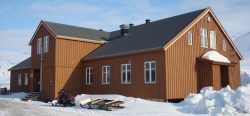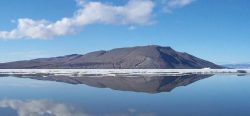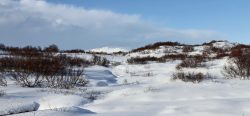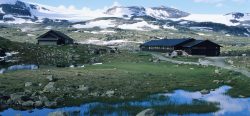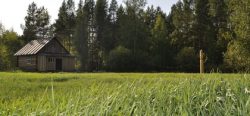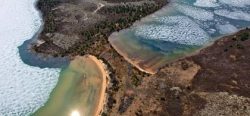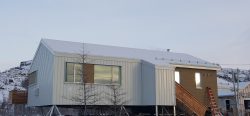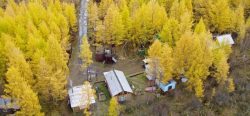NAME AND OWNER
Nunavut Research Institute is located in Iqaluit, NU and is operated by Nunavut ArcticDefinitions of the Arctic vary according to environmental, geographical, political, cultural and scientific perspectives. Some scientists define the Arctic as areas having a high latitude, long winters, short, cool summers,... More College.
LOCATION
The institute is located in the City of Iqaluit which lies on Koojesee Inlet at the end of Frobisher Bay on the south eastern coast of Baffin Island. The institutes centre is in Iqaluit however it maintains accommodation facilities in Arviat and Igloolik, NU. It also maintains facilities that can be used for laboratories in Rankin Inlet and Cambridge Bay,NU. The institute is located on municipal land. Lands in and around Iqaluit also include parcels of federal and Inuit owned land. The Sylvia Grinnel territorial park lies on the edge of city. Iqaluit is located 2,084 km. north of Ottawa, Ontario and 2,200 km. east of Yellowknife, NWT. It is accessible only by air or sea.
BIODIVERSITY AND NATURAL ENVIRONMENT
The Nunavut Research Institute is treeless and vegetation consists of mosses, lichens, small shrubs, grasses and low flowering plants. The sub-soil remains frozen throughout the year. Temperatures average below freezing 8 months of the year. The terrain around Iqaluit is hilly and has been influenced by marine and glacial deposits. Fossil mounts can be found in the area. Tides in Iqaluit approach 12m at their maximum with an average tide of 9m. Caribou, polar bear, fox, wolves and rabbits can be found in the vicinity. Ring, harp, and bearded seal frequent Frobisher Bay. Beluga and walrus are common to the bay as well. Eider ducks and Canada geese appear during the warmer months. Wheatears, snow buntings and rock ptarmigan are present in the spring and summer. ArcticDefinitions of the Arctic vary according to environmental, geographical, political, cultural and scientific perspectives. Some scientists define the Arctic as areas having a high latitude, long winters, short, cool summers,... More char are abundant in the rivers and coastal lakes. Landlocked cod can be found in some lakes off Frobisher Bay.
HISTORY AND FACILITIES
The Iqaluit research centre was opened by the Department of Indian and Northern Affairs in 1978 to support the Eastern ArcticDefinitions of the Arctic vary according to environmental, geographical, political, cultural and scientific perspectives. Some scientists define the Arctic as areas having a high latitude, long winters, short, cool summers,... More Marine Sciences Project. A similar research support centre was also opened in Igloolik in 1975 to support field research. Operations of both centres were devolved to the Science Institute of the Northwest Territories (SINT) in 1988. And the SINT assumed responsibility for administration of the NWT Scientists Act in Nunavut. The Nunavut Research Institute was created in 1995, when they amalgamated with Nunavut ArcticDefinitions of the Arctic vary according to environmental, geographical, political, cultural and scientific perspectives. Some scientists define the Arctic as areas having a high latitude, long winters, short, cool summers,... More College. Responsibility for the Igloolik facility was transferred to the college’s Language and Culture Program in 2008. In 2010 the Iqaluit research centre was replaced with a new facility under the ArcticDefinitions of the Arctic vary according to environmental, geographical, political, cultural and scientific perspectives. Some scientists define the Arctic as areas having a high latitude, long winters, short, cool summers,... More Research Infrastructure fund. Today the Nunavut Research Institute in Iqaluit, NU consists of the following facilities;a research institute with 2 laboratories, a teaching facility with a laboratory, workshop and storage facility. In Addition the research institute has accommodation facilities in Arviat and Igloolik, NU. Laboratory facilities are available for use by researchers in Cambridge Bay and Rankin Inlet, NU.
GENERAL RESEARCH AND DATABASES
Nunavut Research Institute licenses more that 100 research projects each year in natural, social and health sciences. Compendiums on research projects licensed by the institute are available on the website at www.nri.ca. Nunavut Research Institute shares a research library with several other organizations that carry out research in Nunavut. The library can be accessed at www.nwmb-lib.com.
Research is primarily carried out by Canadian and international universities with an interest in the ArcticDefinitions of the Arctic vary according to environmental, geographical, political, cultural and scientific perspectives. Some scientists define the Arctic as areas having a high latitude, long winters, short, cool summers,... More.
HUMAN DIMENSION
The Nunavut Research Institute is situated in the city of Iqaluit. The city Is the largest community in Nunavut and also it’s capital. The city has a population of approximately 8,000 persons and is a centre for government , the largest employer in Nunavut. Approximately 60% of the population of the city is Inuit with the remaining population composed of various ethnic origins. Languages used in government are Inuktitut, Innuinnaqtun, English and French. A full range of services are available within the city. Accomodation is available to licensed researchers through the Nunavut Research Institute. Several hotels and B&B’s with restaurant are located throughout the city.
ACCESS
The Iqaluit airport is a hub for aircraft travelling from small communities throughout Nunavut as well as Ottawa and Montreal. Regular scheduled service Is now available throughout Nunavut. Two airlines from Ottawa serve Iqaluit daily while scheduled flights arrive and depart for Yellowknife and Edmonton 3 days of the week. Weekly flights between Nuuk , Greenland and Iqaluit may occur during the summer months. No road network or boat passenger network is available in Nunavut. The only access to any community in Nunavut is by air.
